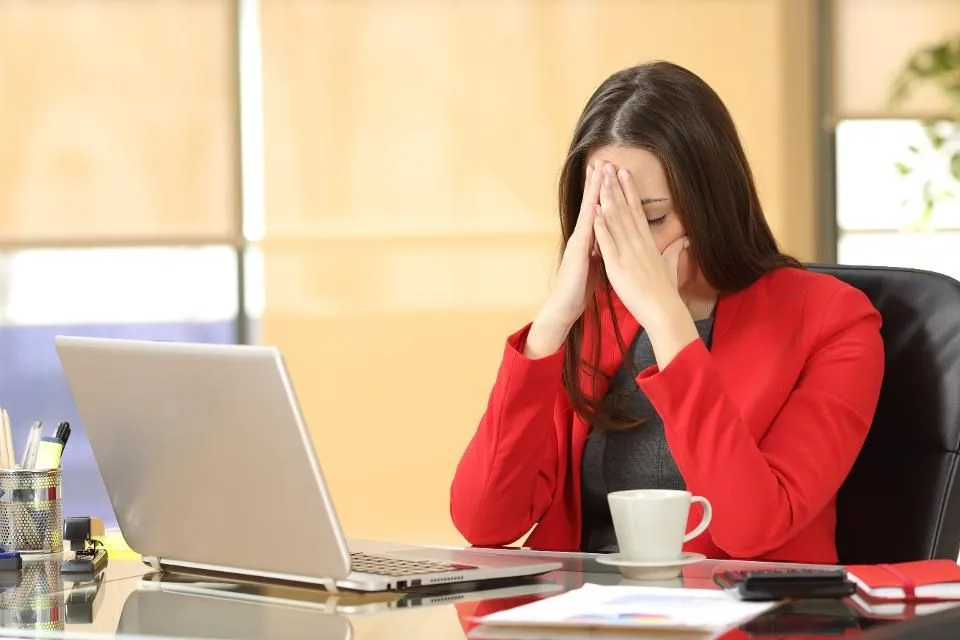Stellenbosch South Africa. Toxic work environments don’t just erode morale, they corrode mental health and quietly eat away at organisational performance. One in four working South Africans has been diagnosed with depression, and the cost of absenteeism linked to this single condition is estimated at R19 billion a year. That’s before counting the broader toll of burnout, stress and disengagement that thrive in unhealthy workplaces. By Prof Renata Schoeman, Head of the MBA in Healthcare Leadership at Stellenbosch Business School
The human and economic costs of toxicity are inseparable. Behind every resignation or sick day is a story of emotional exhaustion, fear or frustration. Over the past year, more than a quarter of resignations in South Africa were attributed to relationship conflicts with a line manager including bullying and harassment. When leaders abuse their authority or allow intimidation to go unchecked, the result is predictable: rising turnover, lower productivity and diminished innovation.
The culture of silence in toxic workplaces
Silence is the oxygen that allows toxicity to survive. In many organizations, employees who experience or witness harassment choose to leave rather than speak up, fearing retaliation or indifference. Studies show that almost 60% of employees who experience or witness workplace misconduct never report it. Fear of being labelled “difficult”, losing out on promotional opportunities or being isolated by peers creates an atmosphere where abuse flourishes.
Even in environments with policies in place, employees often lack faith that their concerns will be taken seriously or handled fairly. This mistrust, sometimes rooted in a history of problems being “swept under the rug”, turns reporting systems into hollow gestures. The result is a dangerous illusion of a healthy culture, while harm festers below the surface.
The invisible wounds of toxic leadership
Toxic workplaces are not defined by one dramatic event but by the accumulation of small aggressions and manipulations: gaslighting, belittling, exclusion and shifting goalposts. Employees begin to feel punished, humiliated and unsafe. The emotional fallout extends far beyond the office and anxiety, depression and burnout spill into families and communities. Harassment isn’t just a workplace issue, it’s a public health concern.
Leadership behavior is the most significant driver of workplace culture. Research indicates that 60% of employees hold senior and middle management responsible for toxic environments, citing a lack of empathy and inconsistency between stated values and daily actions. When leaders fail to model respect and accountability, toxicity becomes systemic.
From moral failure to business risk
Ignoring bullying or harassment is not simply a moral blind spot, it’s a strategic misstep. The financial impact of talent loss, absenteeism, reduced engagement, legal exposure and reputational damage can destabilize even well-performing organizations. In competitive industries, culture serves as a differentiator and has a direct impact on profitability.
Under South Africa’s Employment Equity Act and the Code of Good Practice on the Prevention and Elimination of Harassment in the Workplace, employers are legally obliged to prevent and address harassment. The Code clearly defines harassment, outlines employer responsibilities, and holds organizations accountable for failing to ensure a safe environment. Compliance is not optional and inaction carries real legal and financial risk.
Breaking the silence
Creating a healthy workplace demands more than policy. It requires visible commitment from leadership, proactive prevention and trusted systems of accountability. Building a culture of safety begins with a zero-tolerance approach to harassment, supported by clear communication and consistent action.
Regular training is essential, not just to define what constitutes harassment, but to develop empathy and emotional intelligence in managers. Leaders must set the tone by modeling respectful behavior, encouraging feedback and addressing concerns swiftly and fairly.
Psychological safety is another cornerstone. When employees feel secure enough to raise issues, challenge ideas, and express themselves without fear, creativity and engagement flourish. Diversity, equity and inclusion are also non-negotiable. Fairness in hiring, pay equity and representation at senior levels reinforce a sense of belonging and trust.
Organizations need safe, confidential and well-structured reporting mechanisms. Multiple channels, including anonymous ones, signal genuine openness. Every complaint should be handled promptly, impartially and transparently, ideally by trained professionals.
Lost productivity, talent and human potential
Flexible work arrangements, access to mental health resources, and visible support for employee well-being can also make a measurable difference.
The cost of silence is staggering in lost productivity, talent and human potential. In a toxic workplace, breaking that silence is not just an act of compliance but of courage. It signals a shift from managing crises to cultivating resilience, from protecting reputations to nurturing trust.
Healthy workplaces don’t emerge by chance. They are built, intentionally, by leaders who understand that the way people feel at work shapes not just their performance, but the future of the organization itself.
REFERENCES
[i] SA Depression and Anxiety Support Group. https://www.sadag.org/index.php?option=com_content&view=article&id=2391:new-research-on-depression-in-the-workplace&catid=11:general&Itemid=101&Itemid=101
[ii] Old Mutual. https://www.oldmutual.co.za/news/the-cost-of-workplace-toxicity-on-sa-companies/
Employee Assistance Professionals Association-South Africa (EAPA-SA). https://www.eapasa.co.za/the-state-of-mental-health-in-south-africa/
[iii] Old Mutual/Remchannel. https://www.oldmutual.co.za/news/the-cost-of-workplace-toxicity-on-sa-companies/
[iv] Oak Engage. 2023. https://www.oak.com/media/v1wp24tf/toxic-workplace-report-final-cleaned.pdf
[v] HR Acuity. 2023. https://www.hracuity.com/blog/why-employees-dont-report-workplace-mistreatment/
[vi] Oak Engage. 2023. https://www.oak.com/media/v1wp24tf/toxic-workplace-report-final-cleaned.pdf
About the author
 Prof Renata Schoeman (MBChB, MSocSc, MMed, FC Psych, PhD, MBA, PgDip Futures Studies) is a psychiatrist, academic, and mental health advocate with a full-time private practice since 2008. She offers compassionate, evidence-based care to children, adolescents, and adults — with particular expertise in cognitive disorders (e.g. ADHD), eating disorders, mood and anxiety disorders.
Prof Renata Schoeman (MBChB, MSocSc, MMed, FC Psych, PhD, MBA, PgDip Futures Studies) is a psychiatrist, academic, and mental health advocate with a full-time private practice since 2008. She offers compassionate, evidence-based care to children, adolescents, and adults — with particular expertise in cognitive disorders (e.g. ADHD), eating disorders, mood and anxiety disorders.
Renata is an Associate Professor in Leadership and Head of the MBA in Healthcare Leadership specialisation stream at Stellenbosch Business School (SBS). She also teaches on the SBS Executive Development programme and is actively involved in research, supervision, training of medical professionals, and public education.
A passionate advocate for mental health access and corporate mental health, she serves on South Africa’s Ministerial Advisory Committee on Mental Health and leads the SASOP Special Interest Group for ADHD. She is the co-founder of the Goldilocks and The Bear Foundation, which supports children with ADHD and other mental health challenges in underserved communities.
Renata regularly provides second opinions and expert medico-legal reports and she is a frequent contributor at local and international congresses. She has published extensively. Her academic journey includes training in neurocognition and neuroimaging at Harvard Medical School.
She is registered with the Health Professions Council of South Africa (HPCSA) as well as the UK’s General Medical Council. She is a member of the Advisory Board to the World Federation of ADHD, and the Lancet Series on ADHD.



![women [longevity live]](https://longevitylive.com/wp-content/uploads/2020/01/photo-of-women-walking-down-the-street-1116984-100x100.jpg)










